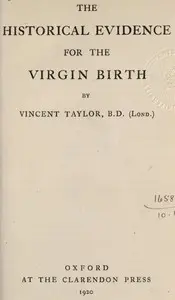"The Promised Day Is Come" by Shoghi Effendi is a theological exploration urging Baháʼí believers to recognize Baháʼu'lláh's teachings amidst a world in crisis. It addresses complex ideas like divine justice and the unification of religions while depicting humanity progressing toward a peaceful future. The narrative begins with an intense tone, reflecting global turmoil and the consequences of human actions, but interprets this chaos as a chance for growth and unity. Using strong symbolic imagery, the text highlights an inevitable period of reckoning and encourages people to embrace their faith's promise during uncertain times.

The Promised Day Is Come
By Effendi Shoghi
Amidst a world facing turmoil and upheaval, an urgent call emerges, beckoning believers to awaken to the transformative power of their faith and embrace a future of unity and peace.
Summary
About the AuthorShoghí Effendi (; Persian: شوقی افندی; 1 March 1897 – 4 November 1957) was an Ottoman-born Iranian religious figure and the Guardian of the Baháʼí Faith from 1921 to 1957. As the grandson and successor of ʻAbdu'l-Bahá, he was responsible for creating a series of teaching plans that oversaw the expansion of the Baháʼí Faith to a number of new countries, and also translated many of the written works of crucial Baháʼí leaders. Upon his death in 1957, the Hands of the Cause, which included his Canadian wife Rúhíyyih Khánum, took on the role of overseeing the transfer of the religion's supreme legal authority to the Universal House of Justice, which has held elections every five years since 1963.
Shoghí Effendi (; Persian: شوقی افندی; 1 March 1897 – 4 November 1957) was an Ottoman-born Iranian religious figure and the Guardian of the Baháʼí Faith from 1921 to 1957. As the grandson and successor of ʻAbdu'l-Bahá, he was responsible for creating a series of teaching plans that oversaw the expansion of the Baháʼí Faith to a number of new countries, and also translated many of the written works of crucial Baháʼí leaders. Upon his death in 1957, the Hands of the Cause, which included his Canadian wife Rúhíyyih Khánum, took on the role of overseeing the transfer of the religion's supreme legal authority to the Universal House of Justice, which has held elections every five years since 1963.



















